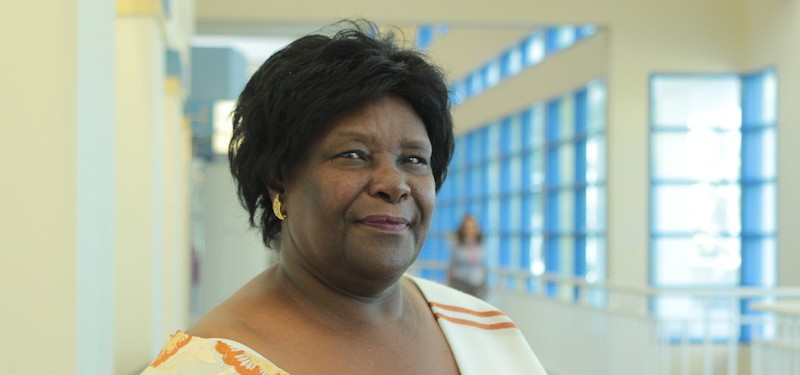JMB: I think whenever there is a healthy relationship, whenever you get new partners, they always give new life to you. And I think internationalsation of education has really allowed Africa students to move into a new realm. You either travel out and be with other students, learn about their cultures, learn about their societies, understand them and come back a more rounded person.
“Internationalsation of education has really allowed Africa students to move into a new realm
Or if you stay within your own area and you get at least to reach out through the internet and learn about new things. So internationalisation in education for me doesn’t just mean an exchange of programmes and students it also means what you can access while you’re in your own world.
The PIE: What impacts have you seen in Africa as a result of internationalisation?
JMB: It is opening up new avenues for our young people, for those people who do not have the opportunity to go to the classroom. For me the whole concept which includes distant learning while staying at home or going abroad on exchange programmes has had a huge impact.
The PIE: How is the African approach to internationalisation different from the American or European one?
JMB: The Africans view internationalisation as a product of the west. It was never our intention really to be international. We just went to school to be better people. However we don’t live in isolation. The original idea of internationalisation was sending students out through exchange programmes, partnerships, collaborations.
Now internationalisation is being done from a purely economic reason for the UK. For Africa it’s a necessity
Now it is more an internal thing, than external. We make our own internationalisation of education from where we are. So for example today I collaborate with people who are not in Kenya, I hear their thoughts do my research, I send it to them to edit for me and see whether it can pass. I do it from where I am.
I think for the UK it was always a way of bringing in young scholars to really help. It was done from a purely moral obligation. Now it is being done from a purely economic reason for the UK. For Africa it’s a necessity. For the UK it’s a money venture so I always look at the concept itself and it’s really not good.
What is national and what is international? International just means across nations. Simple. But how do you really look at education across nations? Education is international anyway. Whatever concept you have in the UK is the same concept you have in Kenya so what is international about that? What is international about the product you offer? If you’re offering physics it is physics, if you’re offering biology, it’s biology. So for me, I find the concept strange. It’s just jargon you use for a purpose.
If you look at the 14 countries that aren’t going to reach their MDGs, eight of them are in Africa. So who needs MDGs? Africa, the continent
The PIE: And what would you say is the purpose?
JMB: I think the purpose here is that we are moving from what we used to call foreign aid. Now we don’t want foreign aid so what can we use to call it? Internationalisation of education. And I think very soon will stop talking about that and just call it education. There is no international education, there is education.
The PIE: Does it bother you that Africa the continent is often bunched together and not discussed on individual country levels?
JMB: No. Today I was talking on behalf of Africa about the Millennium Development Goals (MDG). MDGs are very critical for Africa. If you look at the 14 countries that aren’t going to reach their MDGs, eight of them are in Africa. So who needs MDGs? Africa, the continent.
We need less corruption in Africa and we need good governance
The PIE: Since 2000, what have the MDG efforts done for Africa and where do you see the next wave taking it?
JMB: I can brag about the three women presidents, because before 2000 nobody would have thought that Liberia, after killing each other for so long, would have a woman to lead them. Nobody would have believed that in Malawi, after Kamuzu Banda, the forever man, a woman would rule. Nobody believed the Central African Republic that is nothing but war, that a woman would emerge the leader. That says a lot about where Africa is today. So for me today, when we talk about MDGs which include improving education, can we have 10 women presidents in Africa by the year 2030- another 15 years- and we will be there.
The PIE: Do you think it’s possible?
JMB: They must succeed.
The PIE: What challenges do you see for Africa to achieve real, outward looking education?
JMB: We need a shift in higher education led by fantastic vice chancellors. We need less corruption in Africa and we need good governance. If we have these structures in place I can tell you we will see the beginning of a new dawn in Africa. That’s the future we need.
Related articles




One Response to Judith Mbula Bahemuka, University of Nairobi